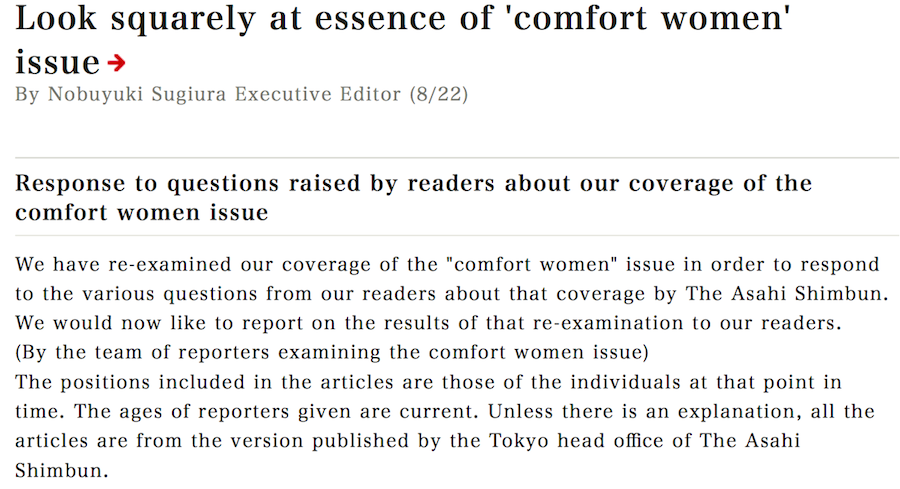Asahi retraction reignites Japan debate over wartime brutality
Related Link: Asahi Shimbun admits errors in past ‘comfort women’ stories (Japan Times)
In 1982, when a Japanese man claiming to be a former wartime labour administrator admitted he had helped kidnap hundreds of Korean women during the second world war, forcing them into military brothels, the Asahi newspaper leapt on the story.
The liberal daily offered its more than 7m readers the earliest and most credulous accounts of the man, Seiji Yoshida, and the sadistic mission he would later detail in a memoir, My War Crimes. In doing so, it opened a debate about a sordid episode in Japan’s past – its brutal exploitation of thousands of so-called comfort women during the war – that continues to unsettle Japanese society and poison relations with South Korea.
But now the Asahi is causing another stir, by acknowledging for the first time what researchers have believed for years: that Yoshida’s story was almost certainly made up.
In a four-page “re-examination” of decades of reporting about the comfort women, published over two days last week, the Asahi formally retracted 16 stories it wrote about Yoshida from 1982 to 1997, and acknowledged other, smaller faults in its coverage. “We were unable to see through his fraudulent testimony,” the newspaper said.
